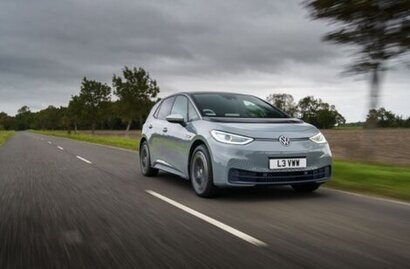
The research shows that electric vehicles (EVs) are no longer a novelty choice and that salary sacrifice schemes are allowing drivers to move up into more premium brands than ever before. In revealing the 10 most popular vehicle orders of 2021, the data shows that a major evolution has taken place in driving habits with 100 percent of the top ten cars ordered being either electric or hybrid.
The change in driver demand shows a shift in mindset from drivers, in part due to the affordability and convenience of a salary sacrifice scheme.
In the main drivers are moving from older higher emission cars into electric, with salary sacrifice continuing to support the Governments Road to Zero Agenda. The new list contrasts with that of 2019 which was made up of mainly petrol and diesel-powered superminis and hatchbacks, with only one EV, the Tesla Model 3 listed.
With more Electric vehicles launching in 2021 the mix of manufacturers has changed to include newer entrants such as Audi, Mercedes, Peugeot as well as more established electric vehicle manufacturers such as Nissan, Kia and Hyundai.
According to the research, the most popular cars are, in alphabetical order:
Audi Q4 e-tron
BMW iX3
Hyundai IONIQ 5 electric
Kia Niro
Mercedes-Benz A Class (PHEV)
Mercedes-Benz EQC
Nissan Leaf
Peugeot e2008
Tesla Model 3
Volkswagen ID3
Recent Tusker research showed that the vast majority of their drivers would not have opted for an electric vehicle had it not been for the salary sacrifice scheme.
As more Electric Vehicles come available Tusker’s order book has shifted away from traditional petrol and diesel vehicles to EV and Ultra Low Emission Vehicles in just two years. In 2019, nine out of ten of the most popular vehicles were petrol or diesel powered, with only one EV making the list, however by 2021 the reverse is now true.
However, some drivers are not quite ready, yet, for electric particularly for those that can’t have a charge point at home or their annual mileages is too high. This makes PHEV vehicles a perfect stepping stone to electric, with the Mercedes A Class PHEV remaining popular for the second year running. 17 percent of Tusker’s orders were for PHEVs in 2021.
“The shift in ordering behaviour away from petrol and diesel-powered vehicles, towards EVs has been rapid, and conclusive” said Paul Gilshan, CEO of Tusker. “We are proud to offer a product that makes Electric driving affordable for the mass market. We have seen the rise in uptake of salary sacrifice schemes, alongside the continuation of low BIK rates that encourage drivers away from traditional fuel types and into affordable and environmentally friendly vehicles.”
As a result of this change in buying habits, Tusker has lowered its average order emissions from 107.9g/Km, to just 36.6g/Km in just two years and is well on its way to achieving a zero-emission fleet by 2030.
For additional information:

